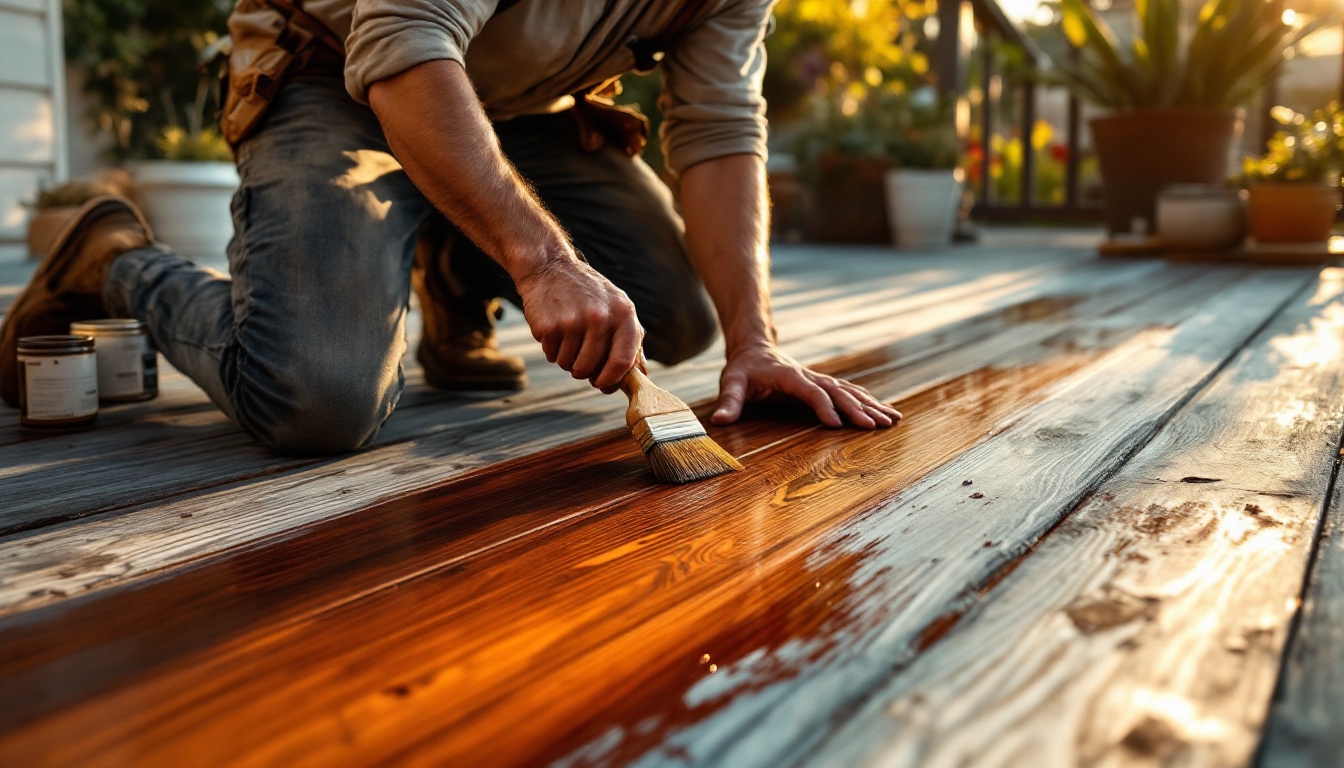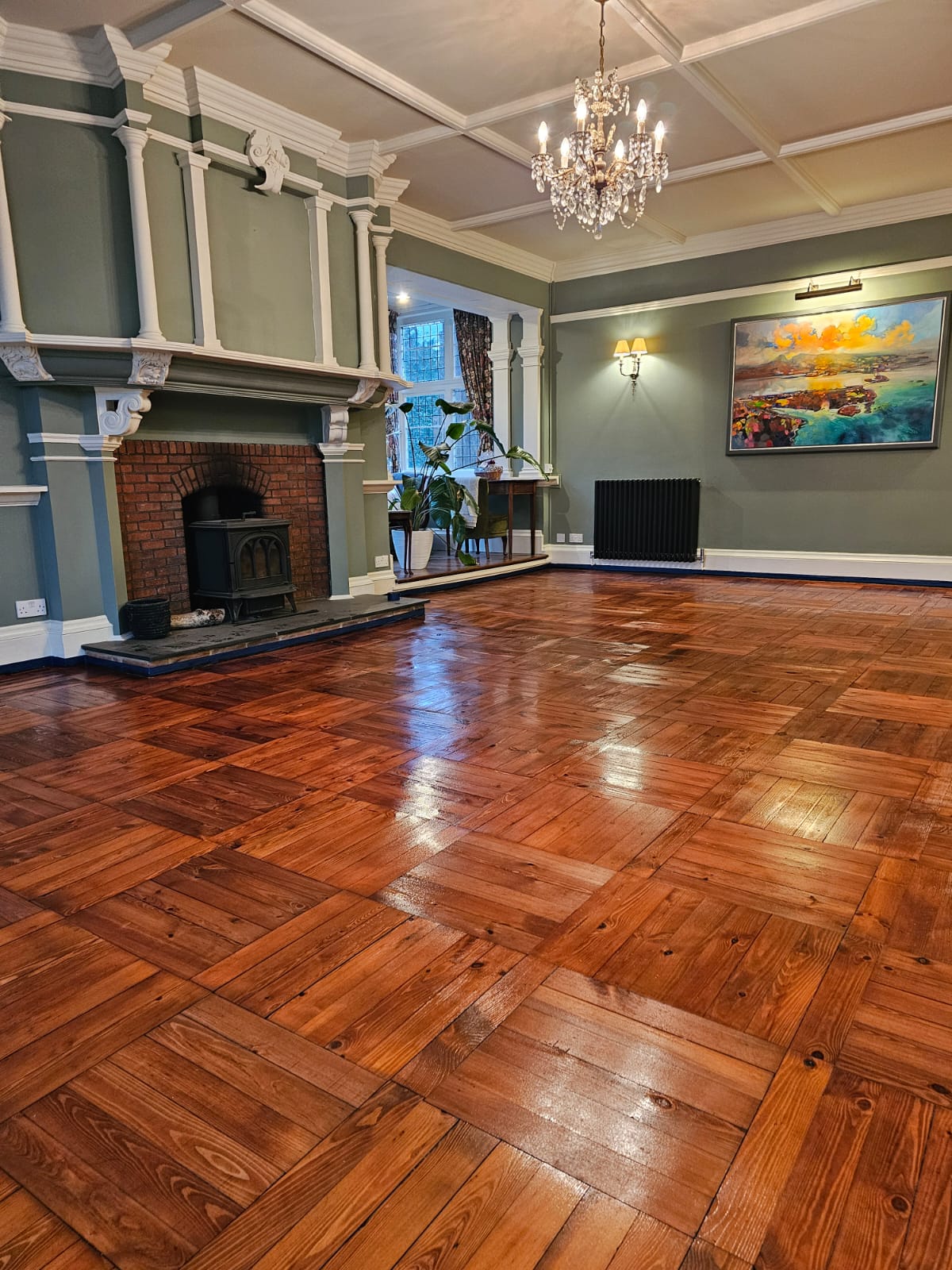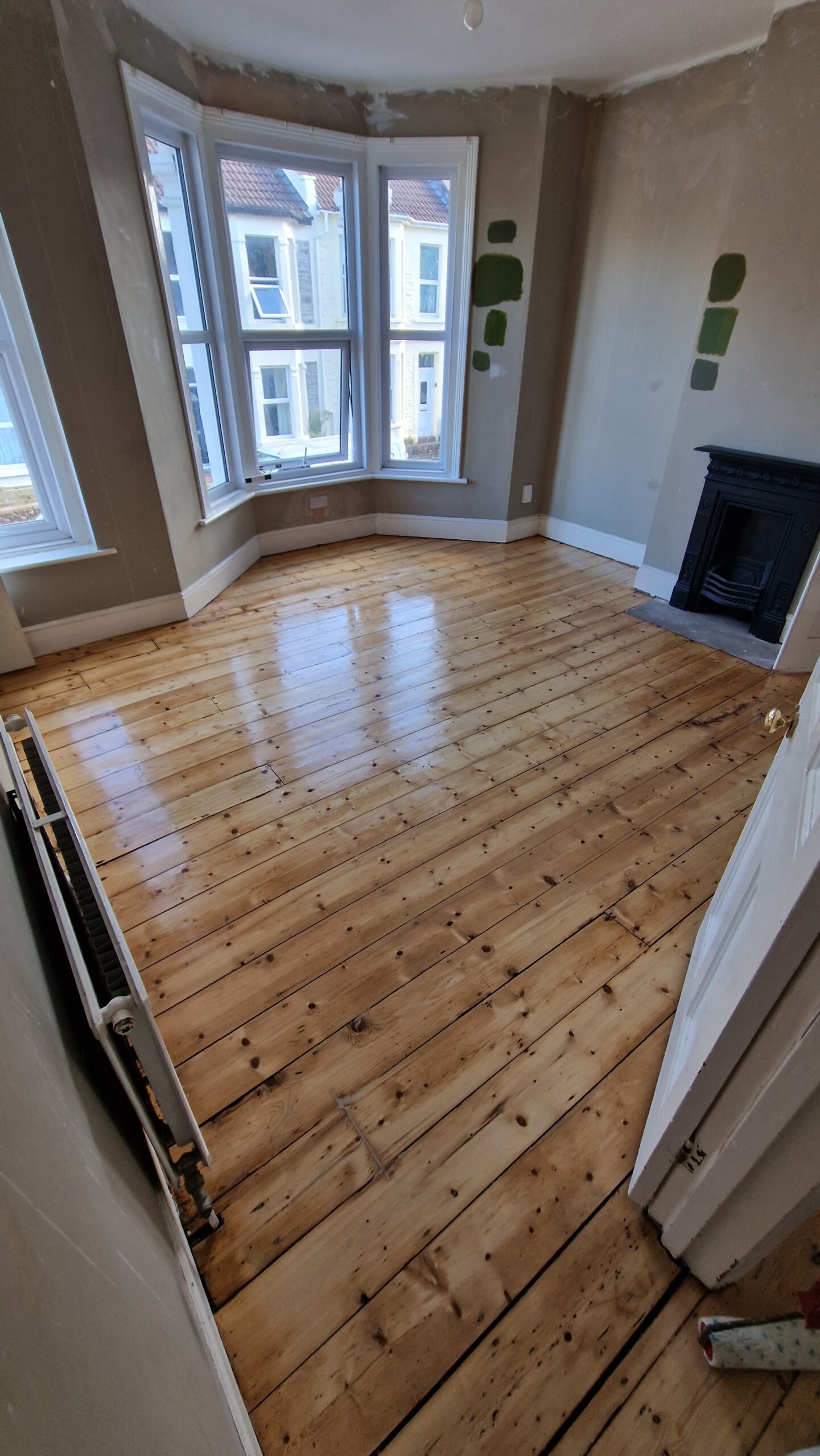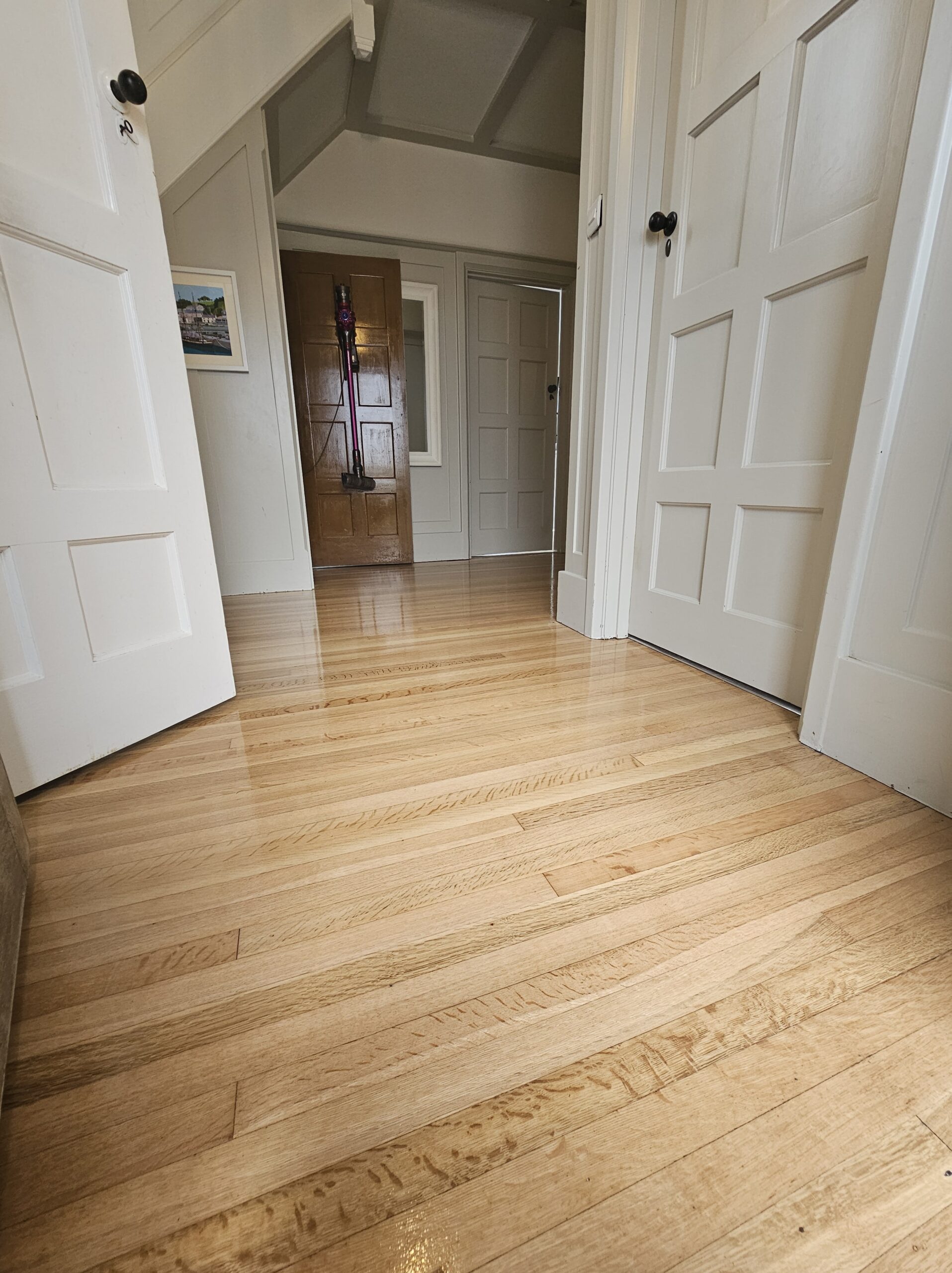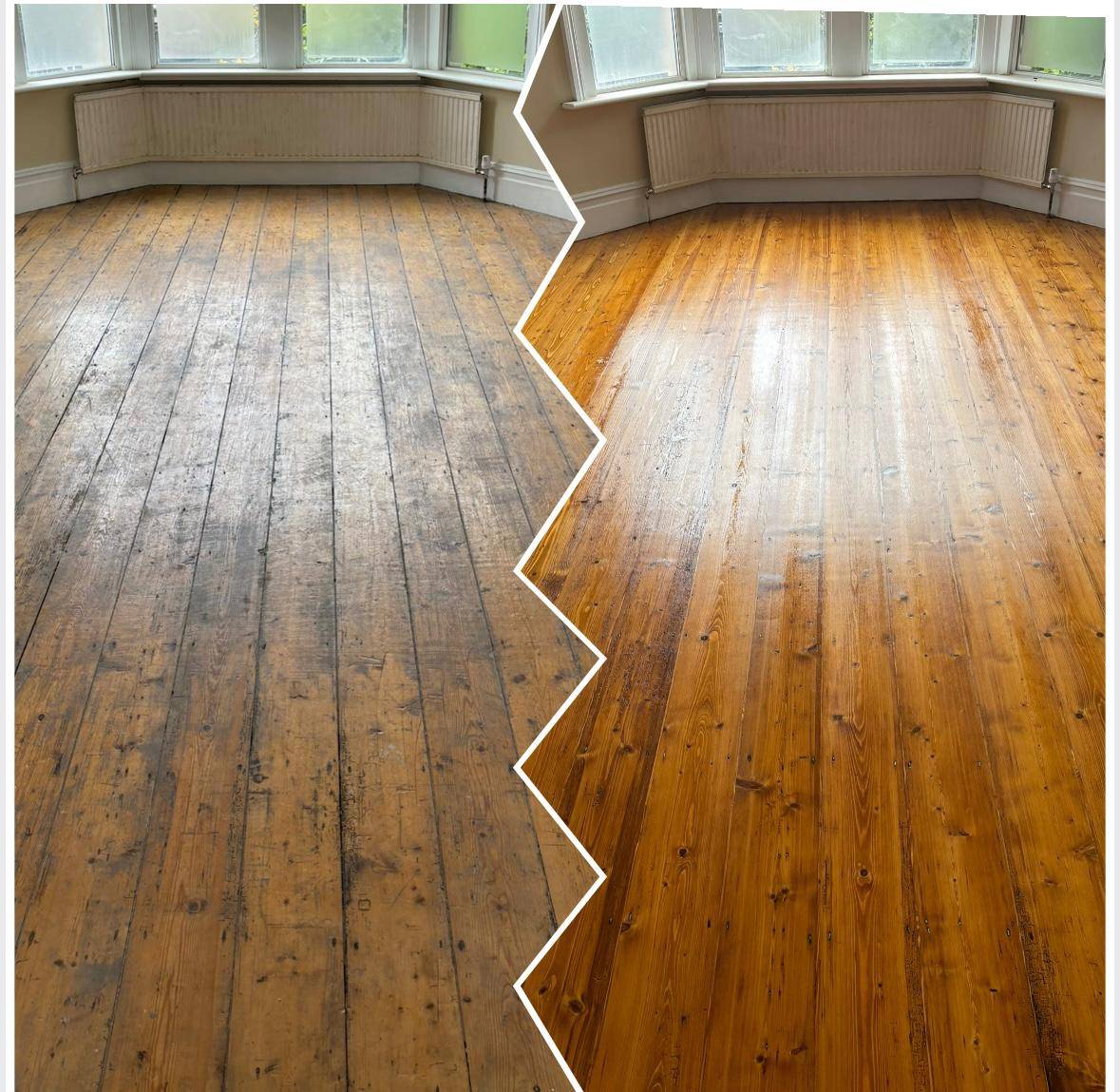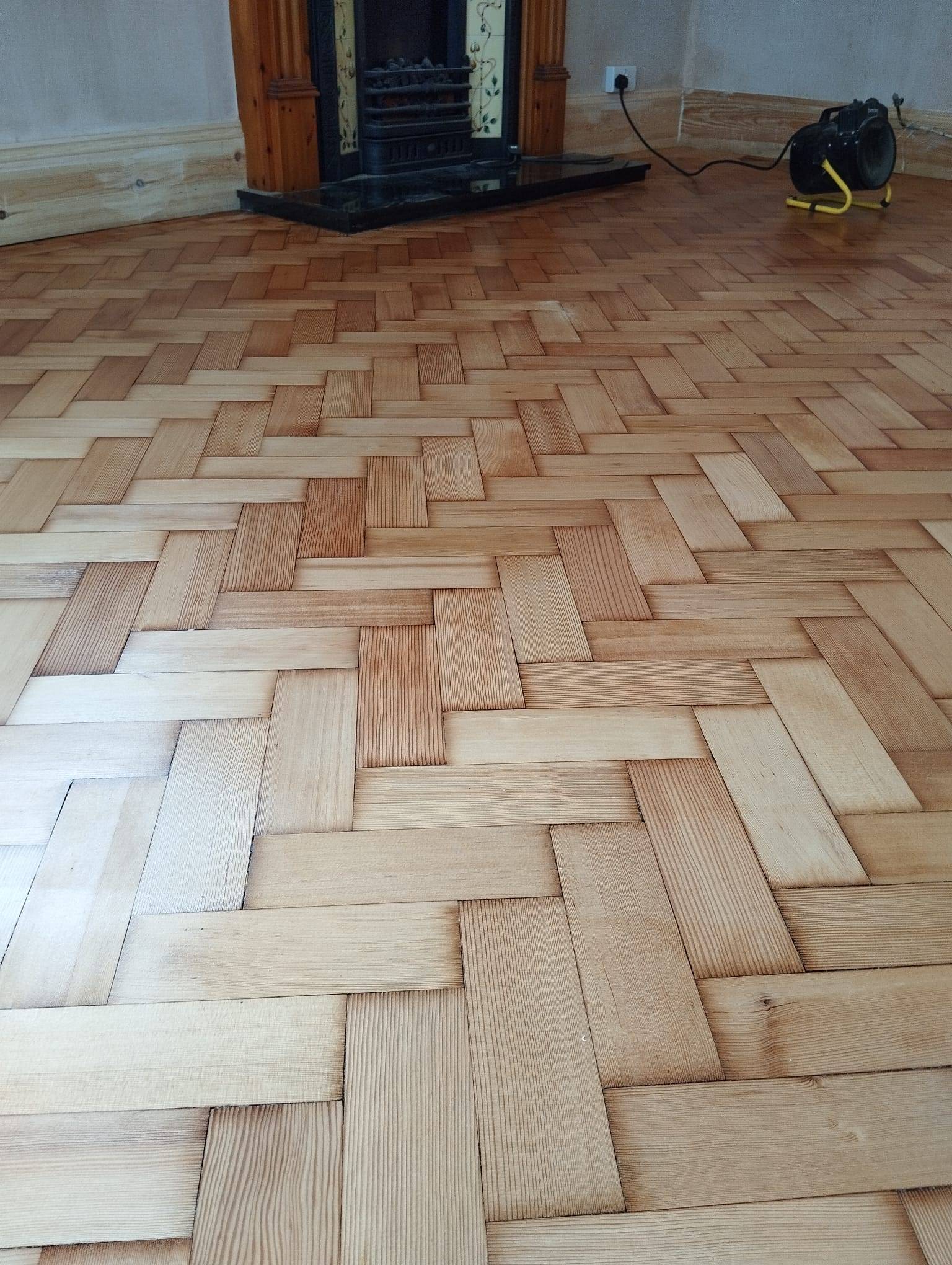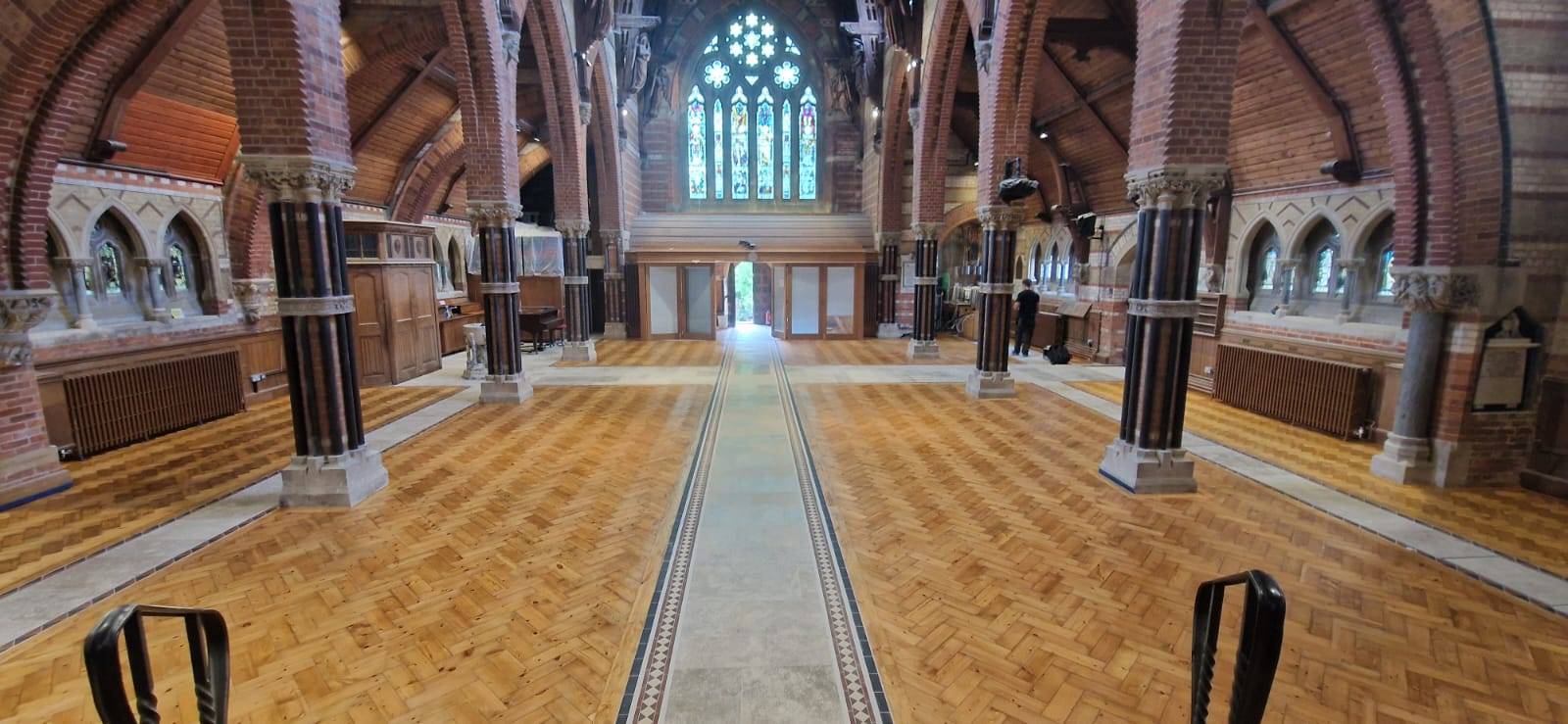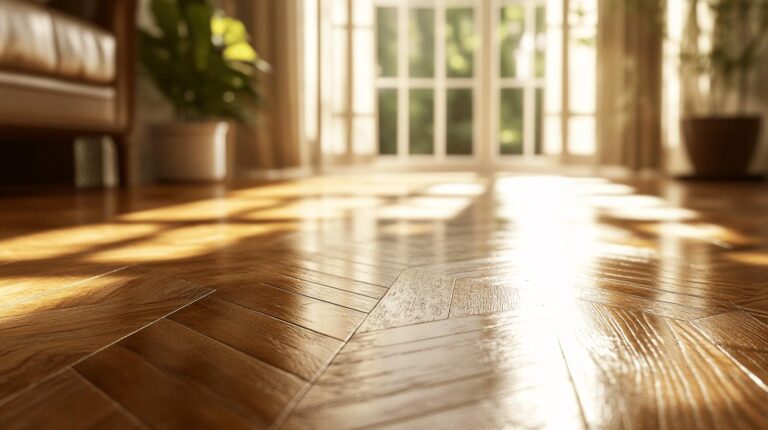Is your deck looking tired and weather-beaten, diminishing your outdoor space’s appeal? Discover the transformation potential of wood staining—a simple yet impactful method to rejuvenate an old deck. Just like a fresh coat of paint breathes new life into a room, staining revitalises wood, enhancing both appearance and durability. As As experts in wood floor restoration, Ryan’s Restoration affirms, choosing the right stain can shield your deck from elements while complementing your home’s aesthetics. Delve into our guide to uncover how staining can add value to your home and turn your deck into a captivating retreat.
Transform Your Deck with the Right Stain
Selecting the right stain is crucial for aesthetically and functionally transforming your deck. A carefully chosen stain not only enhances the visual appeal of your deck by highlighting the wood’s natural grain or providing a uniform colour but also offers protection against environmental elements. Different types of stains offer varying degrees of UV protection, transparency, and finish quality, which should be considered alongside the wood type, local climate, and budget. The choice of stain can significantly impact how long the deck maintains its appearance and structural integrity.
- Transparent stains
- Semi-transparent stains
- Solid stains
- Oil-based stains
- Water-based stains
Colour enhancement is a powerful tool for integrating your deck into your outdoor décor. Transparent and semi-transparent stains allow the natural beauty of the wood to shine through, adding elegance and warmth. In contrast, solid stains can provide a bold statement with a uniform colour that might match or contrast other outdoor elements. By carefully considering the desired aesthetic effect and practical needs, homeowners can achieve a harmonious blend between their deck and the surrounding landscape.
Benefits of Staining an Old Deck
Staining an old deck significantly enhances its aesthetic appeal by rejuvenating its appearance. Over time, wooden decks can suffer from discolouration, scratches, and fading due to exposure to various elements. By applying a stain, homeowners can revive the deck’s original beauty, bringing out the natural grain and colour of the wood. This process not only refreshes the deck’s appearance but also allows for personalisation through the choice of colour and finish, whether it’s a transparent stain that highlights the wood’s natural texture or a solid stain that offers a more uniform look.
Beyond aesthetics, Professional wood floor sealing and staining plays a crucial role in protecting the deck from weather-related damage. Wood is susceptible to rotting, warping, and splintering when exposed to moisture, sunlight, and temperature fluctuations. Stains provide a protective barrier that shields the wood from these elements, thereby preserving its structural integrity. Additionally, stains with UV protection can prevent the wood from fading and cracking, further extending the deck’s lifespan. This protective layer ensures that the deck remains durable and safe for use over many years.
Staining a deck also simplifies its maintenance and can increase the property’s value. A well-stained deck is easier to clean as the smooth finish repels dirt and debris, reducing the frequency of deep cleaning. Furthermore, regular re-staining prevents costly repairs by addressing minor issues before they escalate. From a real estate perspective, a beautifully maintained deck can significantly enhance curb appeal, potentially increasing the home’s market value. Prospective buyers often see a well-cared-for deck as a desirable feature, adding both practical and financial benefits to the property.
Preparing Your Deck for Staining
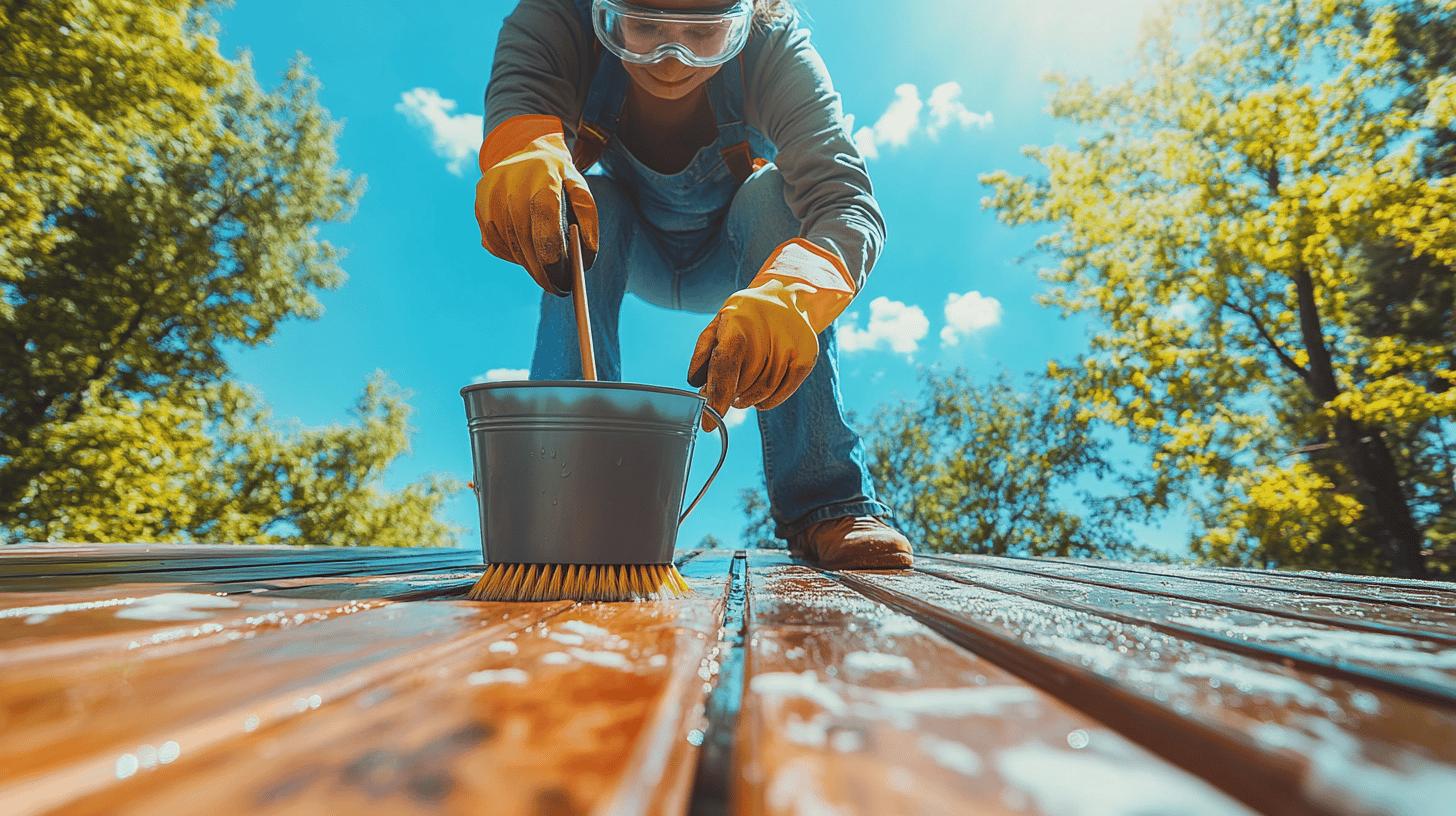
Proper preparation is fundamental to achieving a successful and long-lasting stain application on your deck. Without adequate preparation, even the best-quality stains can fail to adhere correctly, leading to premature wear and a lacklustre appearance. Preparation involves several critical steps, such as clearing the deck of furniture and debris, inspecting for any structural damage, and ensuring the wood is free from contaminants. This meticulous approach not only enhances the aesthetic outcome but also extends the durability of the stain, safeguarding the deck against environmental stressors.
Essential Cleaning Techniques
Choosing the right cleaning solutions and methods is vital to preparing your deck for staining. Begin by selecting a cleaning agent specifically designed for wood surfaces to effectively remove mildew, mould, and dirt without damaging the wood fibres. A mixture of water and a gentle, wood-friendly detergent can work well for general cleaning, while more stubborn stains may require a specialised deck cleaner. Use a stiff-bristle brush to scrub the surface, ensuring that all residues are eliminated, which helps the stain penetrate evenly.
Thorough cleaning is crucial to prevent sealing contaminants into the wood, which can lead to discolouration and uneven finishes. Any remaining dirt or mould can interfere with the stain’s ability to adhere properly, resulting in blotches or peeling over time. By investing time in comprehensive cleaning, you ensure that the wood’s surface is primed to absorb the stain uniformly, enhancing the finished product’s appearance and longevity.
- Clear and inspect the deck
- Clean and remove mould/mildew
- Sand rough surfaces
- Repair damages
- Allow to dry completely
- Mask off areas
Step-by-Step Guide to Staining Your Deck
When deciding whether to undertake a DIY staining project or hire a professional, consider your skill level, available time, and desired finish quality. While DIY staining can be rewarding, it requires diligence and attention to detail to achieve professional results. Ryan’s Restoration offers professional assistance for those seeking expertise, ensuring a flawless finish and saving time and effort. Their experience can be especially valuable for complex projects or when working with intricate deck designs.
- Choose the right weather.
- Prepare the stain
- Test a small area
- Apply stain to railings and spindles
- Stain the deck surface
- Wipe off excess stain
- Allow to dry, and apply additional coats
- Clean up and wait for a full cure
Applying the stain involves several critical steps to ensure a uniform and lasting finish. Begin by selecting a dry, calm day to prevent moisture interference and ensure the stain dries evenly. Mix the stain thoroughly to avoid inconsistencies and prepare it according to the manufacturer’s instructions. Before applying the stain to the entire deck, test a small, inconspicuous area to check for colour and compatibility with the wood. Start with railings and spindles, using a brush or sprayer, then proceed to the deck surface, working in sections to maintain a wet edge and avoid lap marks.
Safety cannot be overstated when staining your deck. Always wear a respirator or breathing mask when sanding to protect against dust inhalation. Use gloves and protective eyewear to shield against potential splashes and spills. Ensure adequate ventilation during application by working in well-aerated areas or using fans to disperse fumes. Taking these precautions not only safeguards your health but also improves the quality of the staining process.
Post-staining care is essential for achieving a durable finish. After application, allow the stain to dry according to the product’s guidelines, which may vary based on the weather and stain type. If additional coats are required, ensure the previous layer is completely dry to prevent tackiness. Once the final coat has cured, clean up any tools and equipment used in the process, and avoid using the deck until the stain is fully set. This careful management ensures a long-lasting, beautiful deck surface.
Maintaining Your Stained Deck for Longevity
Regular maintenance is essential for preserving the appearance and extending the lifespan of a stained deck. Performing routine inspections allows for the early detection of any issues, such as loose boards or developing cracks, that could compromise the deck’s integrity. Cleaning the deck to remove dirt and debris prevents surface abrasion and maintains the stain’s protective qualities. Additionally, sealing joints and trimming back surrounding vegetation can prevent moisture accumulation and promote proper ventilation, reducing the risk of rot and decay.
How often should a deck be re-stained for optimal protection? Every 2-5 years is recommended, depending on the stain formulation and environmental conditions. This time frame ensures that the protective barrier remains intact, safeguarding the wood against UV rays, moisture, and temperature changes. In between re-staining, touch-ups may be necessary to address areas of high traffic or exposure, maintaining a consistent and attractive finish. Choosing the right stain based on its durability and longevity can further enhance the deck’s appearance and resistance to weathering.
Protecting your deck from environmental factors is crucial for maintaining its beauty and function. Furniture pads can prevent scratches and wear from outdoor furnishings while covering or storing items during inclement weather, which reduces stress on the wood. Minimizing snow and ice build-up, along with considering the application of a clear protective coat, can further shield the deck surface from harsh winter conditions. Following these practices, along with manufacturer recommendations, ensures that your deck remains a valuable and long-lasting feature of your outdoor space.
Final Words
Engaging in the process of transforming your deck reveals the true value of staining an old deck. Selecting the appropriate stain type not only augments the aesthetic appeal but also ensures lasting protection. Proper preparation, from detailed cleaning to essential repairs, lays the groundwork for successful staining application.
The benefits of regular maintenance cannot be overstated, offering durability and preserving visual allure. Applying these insights ensures your deck remains a valued feature of your home. Embrace these expert tips and enjoy a rejuvenated outdoor space with lasting impact.
FAQ
Q: Is it worth staining an old deck?
A: Staining an old deck is beneficial as it enhances aesthetics, protects against weathering, extends lifespan, preserves wood, and potentially increases home value, offering significant value for maintenance and visual appeal.
Q: Do you need to remove old stains before restaining a deck?
A: It is important to remove old stains prior to restaining. This ensures proper adhesion and optimal penetration of the new stain, preventing issues like peeling and uneven finish.
Q: Can I stain over an old stained deck?
A: You can stain over an old stained deck, provided that the previous stain is entirely removed or amended and the deck is adequately prepared to ensure the new paint adheres effectively.
Q: How do you make an old, weathered deck look good?
A: Making an old, weathered deck look good involves thorough cleaning, sanding, repairing damages, choosing a suitable stain type, and applying it correctly to restore aesthetics and protect the wood.
